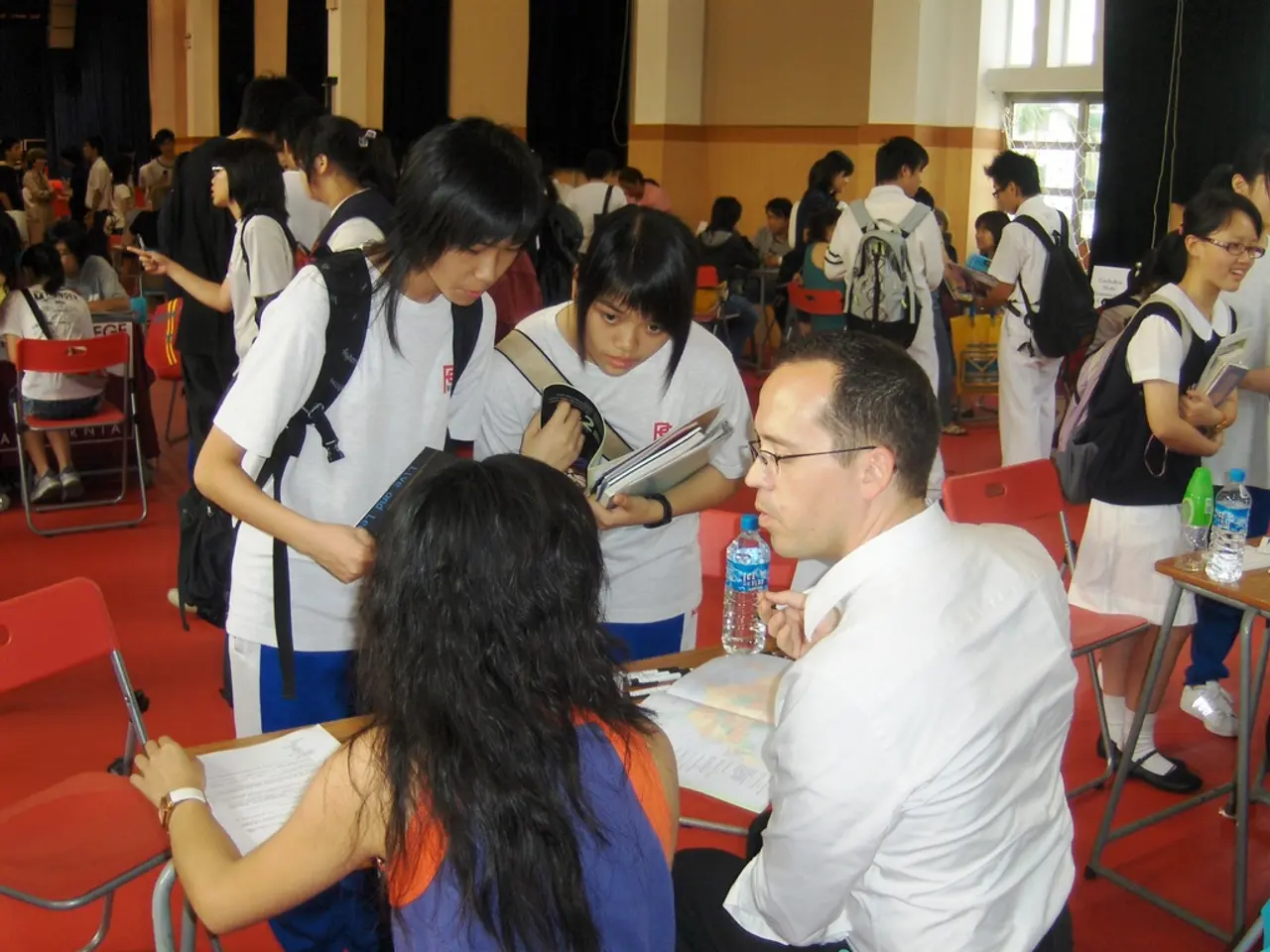Exploring Further Avenues of Sexual Misconduct Incidents on College Grounds
In the realm of higher education, the issue of sexual violence and harassment continues to be a pressing concern. A national survey on the prevalence rates of such incidents could contribute significantly to the broader sex offender literature, aiding in the understanding of intersectional aspects of these issues.
Universities have a responsibility to address power imbalances and protect against potential shielding of perpetrators in staff-on-student cases. This can be achieved through a combination of clear policies, transparency, and training.
Key strategies include prohibiting or strictly regulating intimate relationships between staff and students where a power imbalance exists, such as in academic authority. For instance, Queen Mary University's policy explicitly prohibits certain staff-student relationships and requires disclosure to manage risks around equity of treatment.
Transparent, multi-stage disciplinary processes with the possibility of appeal and review by different investigators are also essential. Cranfield University's approach involves informal and formal investigation stages, with outcomes reviewed by parties separate from the initial investigators to maintain impartiality.
Mandatory, tailored training for staff to identify, address, and prevent harassment and sexual misconduct is another crucial element. Royal Agricultural University requires all staff to undertake such training, ensuring they understand their role in preventing misconduct and supporting victims.
Clear reporting obligations for staff, including mandatory reporting of sexual misconduct to designated offices, are also vital. Yale University mandates all faculty and staff to report incidents to their Title IX Office, providing an institutional framework for accountability.
Providing easily accessible support resources and trained advisors who can guide students through reporting processes and investigations is equally important. The University at Buffalo offers Sexual Harassment Information Advisors in each unit and runs a Violence Prevention Team dedicated to prevention and response.
Universities should also prohibit the use of Non-Disclosure Agreements (NDAs) related to harassment and sexual misconduct allegations to avoid silencing victims and hindering justice, as adopted by Royal Agricultural University following regulatory guidance.
By implementing these combined policies and practices, universities seek to mitigate power imbalances, ensure accountability, protect complainants, and prevent protections for perpetrators in cases of sexual violence or harassment involving staff and students.
Professor Graham Towl from the Psychology Department suggests more rigorous regulation and cultural change to combat sexual violence on university campuses. The academic community should move from a culture of secrecy to one of transparency and openness, which may also contribute to prevention.
It is essential to collect data on sexual violence and harassment prevalence rates to better understand which groups may be more or less likely to be subjected to such behavior or be perpetrators of it. The focus should not only be on victim survivors but also on discussing perpetrators more.
The academic community should also focus on dismantling aspects of the culture that enable sexual violence, such as banning sexual relationships between staff and students, and prioritizing student safety and well-being over academic power, prowess, and prestige.
Complaints about students or staff are handled separately in "Human Resources" departments and "Student Conduct" offices. University governing bodies and executive teams have the opportunity to ban staff-student sexual relationships.
However, it is concerning that many universities seem to avoid discussing issues of sexual violence and harassment on open days, contributing to a lack of transparency and potentially a credibility problem. The academic culture of secrecy protecting perpetrators, whether staff or students, has prevailed and may require more rigorous regulation and cultural change to combat.
Perpetrators of sexual violence at universities are predominantly male students subjecting female students to such behavior. It is important to note that neither banning staff from having sex with students nor discussing efforts to reduce sexual violence on campus significantly increases institutional financial costs.
In staff-on-student sexual violence cases, there is an additional power imbalance due to the academic roles involved. In staff-on-staff cases, the perpetrator is often more senior and the victim/survivor is more junior. There may be protections in place for more junior staff or especially prominent researchers in such cases.
Some universities do not share information on the sanctions issued to those in breach of sexual violence and harassment policies, which can lead to the institutional protection of perpetrators. Reporting rates may be increased by the wider dissemination of policies and services, and emphasizing cases being determined on the balance of probability rather than the criminal standard of evidence.
The impact of positive changes in addressing sexual violence would be felt not just at universities but beyond as well, due to the reach of universities for each new cohort of students. It is a call for the academic community to take a stand against sexual violence and harassment, fostering a culture of safety, respect, and accountability.
- To improve mental health and well-being of students, universities should implement clear policies and transparency to address sexual violence, ensure accountability, and protect complainants, as suggested by Professor Graham Towl from the Psychology Department.
- In the light of health-and-wellness and education-and-self-development, universities should focus on collecting data on sexual violence and harassment prevalence rates to understand the intersectional aspects of these issues more effectively.
- By prohibiting sexual relationships between staff and students where power imbalances exist, universities can protect students from potential exploitation, as demonstrated by Queen Mary University's policy.
- Engaging in policy-and-legislation reform, universities have the opportunity to ban staff-student relationships, establish transparent disciplinary processes, and ensure mandatory reporting of sexual misconduct to combat the pervasive issue of sexual violence and harassment on campus.




